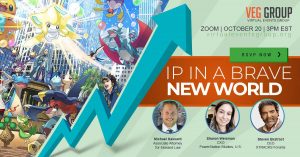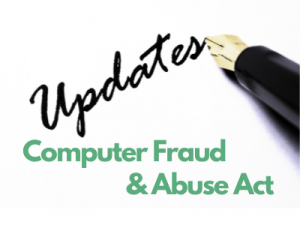 This week, I joined the advisory board of the Defensive Patent License project. The DPL is a reciprocal patent license intended to establish a safe space for innovation among its members. When a company or person joins the DPL community, it licenses its patents to every other member, and receives a license to the patents of every other member. As the DPL community grows, so does the patent peace enjoyed by each member.
The DPL was soft-launched a year ago with the publication of version 1.0. Since, Jason Schultz, one of the DPL’s co-creators, has been talking to patentees and other stakeholders about what they want out of the license. I’ve had some great conversations with Jason about improving the license for its official launch later this year. My input has focused on the needs of the free and open source software community, as well as on the lessons about drafting public licenses that I’ve learned from working with FOSS licenses. Jason’s been really receptive to my input, and I think that the new version will be a strong constitution for the DPL community.
Patent proliferation is a significant impediment to innovation, particularly in the software industry. As Timothy B. Lee and Chistina Mulligan have written, the lack of standard language for describing software inventions makes software patents difficult to discover. That means that the patent office’s examiners often fail to find prior art that would invalidate a new application, and that it’s practically impossible for software producers to know whether their software infringes existing patents. And there are other problems: the patent office and courts have approved excessively broad and abstract claims, and the massive damages that patentees can seek for infringement have encouraged speculators (trolls) to roll the dice with junk patents, often forcing smaller defendants to settle or fold.
The Supreme Court’s Alice Corp. v. CLS Bank decision has invalidated some of the worst offenders, and is likely to wipe out many more before the dust settles. But its reach is limited, and many patents applicable to software will survive, along with all of the uncertainty they create for developers. The DPL is an effort to reduce that uncertainty for those who join. It won’t solve the whole problem, and at first its demilitarized zone will be small. But it gives companies like Tesla Motors, who have positioned themselves as opponents to patent proliferation, the opportunity to make a serious commitment to free innovation. And it gives those without patents the opportunity to receive a license in return for a commitment to license any future patents they may acquire. I’m glad to have the chance to help make the DPL a useful tool in fight for patent sanity.]]]]> ]]>
This week, I joined the advisory board of the Defensive Patent License project. The DPL is a reciprocal patent license intended to establish a safe space for innovation among its members. When a company or person joins the DPL community, it licenses its patents to every other member, and receives a license to the patents of every other member. As the DPL community grows, so does the patent peace enjoyed by each member.
The DPL was soft-launched a year ago with the publication of version 1.0. Since, Jason Schultz, one of the DPL’s co-creators, has been talking to patentees and other stakeholders about what they want out of the license. I’ve had some great conversations with Jason about improving the license for its official launch later this year. My input has focused on the needs of the free and open source software community, as well as on the lessons about drafting public licenses that I’ve learned from working with FOSS licenses. Jason’s been really receptive to my input, and I think that the new version will be a strong constitution for the DPL community.
Patent proliferation is a significant impediment to innovation, particularly in the software industry. As Timothy B. Lee and Chistina Mulligan have written, the lack of standard language for describing software inventions makes software patents difficult to discover. That means that the patent office’s examiners often fail to find prior art that would invalidate a new application, and that it’s practically impossible for software producers to know whether their software infringes existing patents. And there are other problems: the patent office and courts have approved excessively broad and abstract claims, and the massive damages that patentees can seek for infringement have encouraged speculators (trolls) to roll the dice with junk patents, often forcing smaller defendants to settle or fold.
The Supreme Court’s Alice Corp. v. CLS Bank decision has invalidated some of the worst offenders, and is likely to wipe out many more before the dust settles. But its reach is limited, and many patents applicable to software will survive, along with all of the uncertainty they create for developers. The DPL is an effort to reduce that uncertainty for those who join. It won’t solve the whole problem, and at first its demilitarized zone will be small. But it gives companies like Tesla Motors, who have positioned themselves as opponents to patent proliferation, the opportunity to make a serious commitment to free innovation. And it gives those without patents the opportunity to receive a license in return for a commitment to license any future patents they may acquire. I’m glad to have the chance to help make the DPL a useful tool in fight for patent sanity.]]]]> ]]>

Webinar Invite: Michael Hassard joins a virtual panel on Intellectual Property and Smart Contracts – Oct 20, 2022 3pm ET
Firm Associate Michael Hassard will be part of a virtual panel discussion on on Intellectual Property (IP), Smart Contracts, Branding, and Usage Rights. October 20, 2022 at 3pm Eastern. Sign up to attent.



